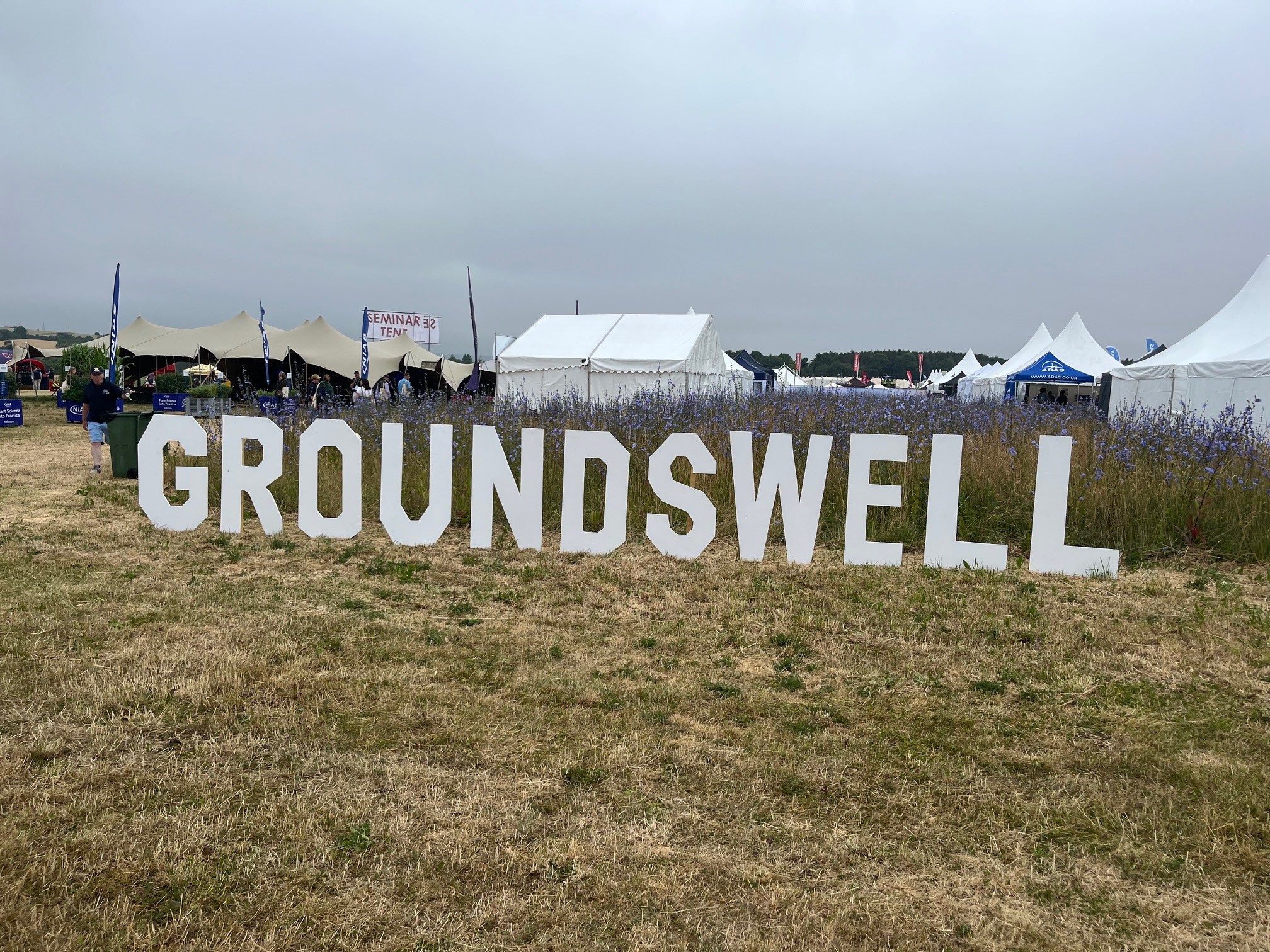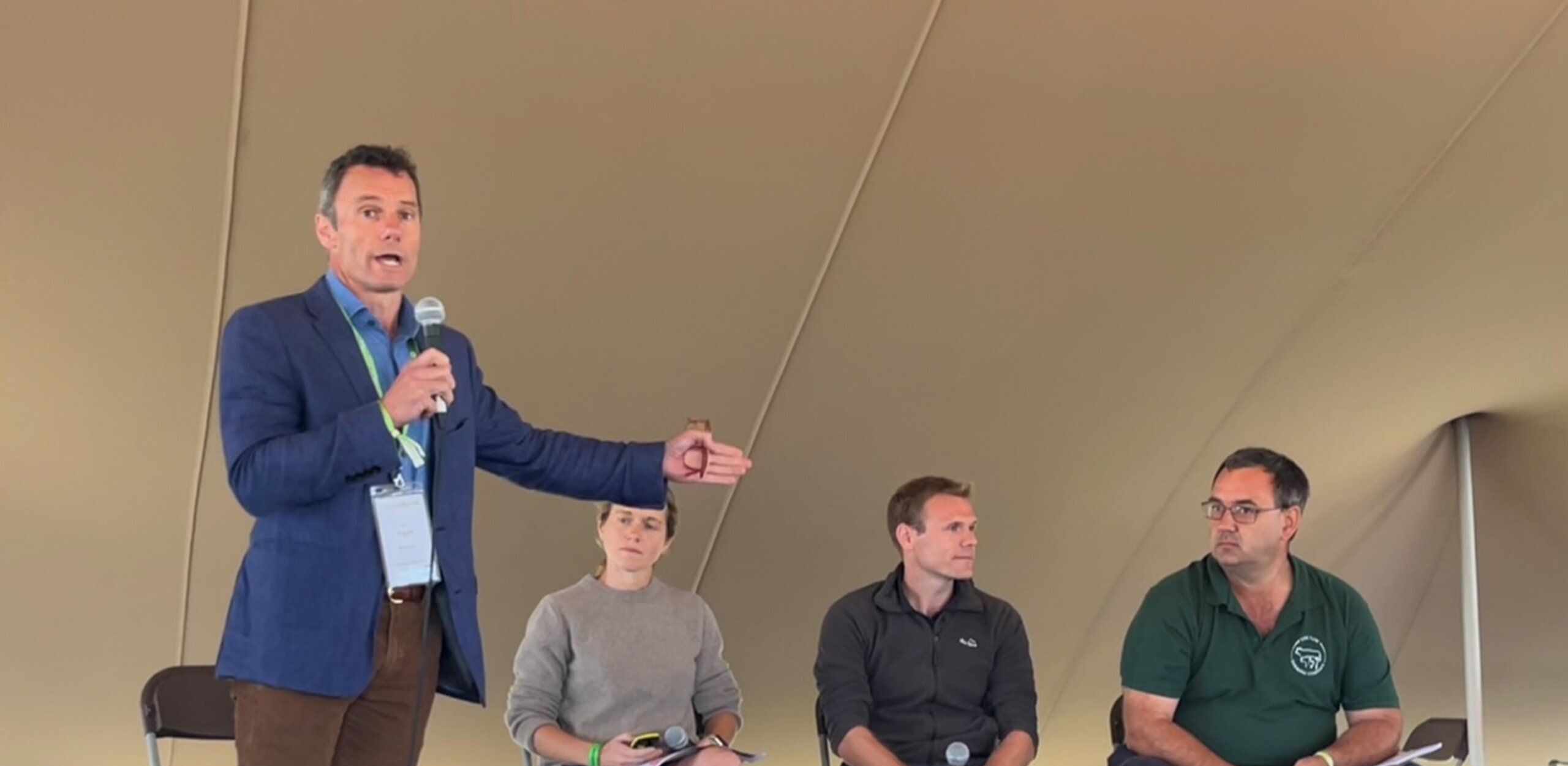
British farming has seen difficult times before. The MacSharry reforms (of the EU’s Common Agricultural Policy) coincided with my graduation from Wye College in 1992. Prospects for UK agriculture were so dour that most of my peers turned their back on an expected career in farming, never to return.
Wine lakes, grain and butter mountains were replaced with set aside and the first environmental stewardship schemes. Farming rallied.
Why the history lesson? Because, for generations when faced with adversity, farmers have responded with innovation, imagination and investment. Both intensification and extensification have secured many a farm business’ survival. As has the adoption of new technology or government grants. Since 1945, UK farms have had a financial safety net of some form or other.
Post Brexit, Michael Gove lauded the ‘fourth agricultural revolution.’ Launching the Environmental Land Management Scheme (ELMS). Public money would be used to pay for public goods such as habitat creation, or environmental protection. Defra’s methodone to wean farmers off CAP support. The Sustainable Farming Incentive (SFI) was borne to incentivise farmers to adopt a more regenerative approach.
Then, in the spring of 2022, Vladimir Putin invaded Ukraine. Commodity prices doubled and input prices tripled. Farms with the greatest economies of scale were rewarded. Few of these are in the UK. UK farmers piled into SFI schemes to mitigate risk. The treasury budget was blown and the government’s appetite for anything rural received an Ozempic-like jab. Priority was given to spiralling debt and competing demands for NHS, defence and education.
Now, in the summer of 2025, family farms find themselves on a knife-edge. Wafer thin margins will become paper thin. Rest assured, farmers will roll their sleeves up further. But those sleeves are nearly touching their armpits.
But there is hope in the form of regenerative farming methods. On our farm we have been learning to farm this way for nearly ten years. We have found a sense of belonging within a new tribe of farmers across the world with an insatiable appetite to learn and share.
“We have found a sense of belonging within a new tribe of farmers across the world with an insatiable appetite to learn and share.”
Two weeks ago, the farming event Groundwell hosted its ninth year. Celebrating regenerative farming, this brainchild of the Cherry family is attended by not just farmers from the UK but from all over the world. Also visiting were policy makers, ministers, the Prince of Wales and the Duchess of Edinburgh. Groundswell defines a new world where the familiar currency of size; yield, farm and tractor isn’t legal tender.

Success is learning, listening and being prepared to try. There are no barriers to entry. Driven by cost savings, soil is the currency. Preserving soil organic matter and promoting its microbes through diverse rotation, ground cover, cover crops, no till and livestock nutritional density is improved, as is the resilience of the land it supports. It is no longer the preserve of those in sandals and jerkins. Regen is becoming mainstream, ably fuelled by necessity, the mother of invention.
Being paid to grow legume fallows, herbal leys and pollen and nectar mixes (via the SFI scheme) in the years between cash crops has benefitted the soil and derisked businesses enormously. What is less appreciated is the role that public money for public good has contributed to the cohesion of rural communities. Allowing smaller farmers to regenerate and prosper.

Photo: Ian Pigott chairing a session in conversation with farmers at Groundswell 2025
2025 will define a tipping point. More acres are being sold than at any time since 1997. I do not recall a bleaker future in my lifetime. Inevitably some farms will increase in size. Technological advancement and efficiencies will save others. But of greater concern is that, if small and medium sized farms disappear, rural communities will fail. These rural places will lose the brain of knowledge that feeds its heart.
“…if small and medium sized farms disappear, rural communities will fail”
Once the farms are lost, society slips further away from its connection with the land, and the value society places on food and nature wanes once more. Those custodians, produce the food, they are also the gatekeepers of historical climatic data. Generation to generation has passed down how natural capital has behaved and adapted to climate. Science does not provide this 3D knowledge.
Governments love to ‘pump prime.’ Lubricating a market before financial reward starts to flow. If ELMS disappears, private investment in natural capital markets and biodiversity net gain will not fill that void. And our food system doesn’t reward regenerative farming. How ironic, there has never been a greater need to conserve and restore the British countryside and the British diet (if for no other reason than to achieve net zero and save the NHS). Yet we have chosen this moment in time to abandon the very lever that can reverse the decline.
The hard work has been done. Farmers are receptive to change. And there is a growing interest within society to look after ourselves and to protect and preserve our land and the habitats it supports. But I fear that without supplementing farmers care of the environment, they will abandon a transition to regen in a quest to balance the books.
“…when farming scales, the value placed on food, on farmers, community connection, habitat creation… all become casualties”
In my career, I am fortunate to have visited farms on six of the seven continents. Firsthand experience has shown, without exception, when farming scales, the value placed on food, on farmers, community connection, habitat creation, and belonging through biophilia all become casualties. If we can regenerate our farms and communities, I believe our food systems will follow.
Ian Pigott runs a regenerative farming business close to Luton. He sits on the Food Ethics Council, is a Trustee of the Ernest Cook Trust and the Founder of Open Farm Sunday.